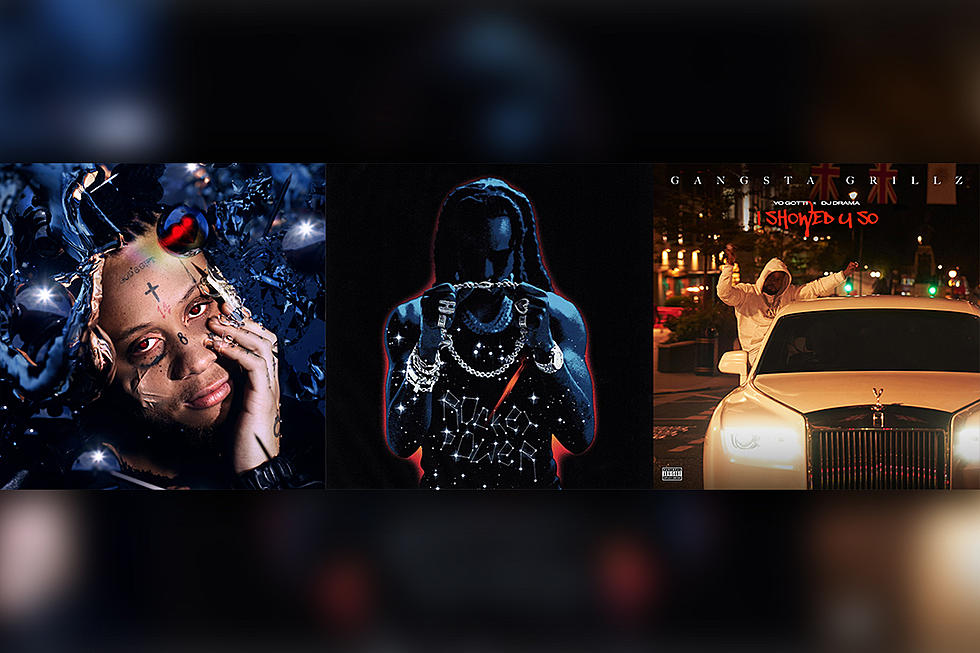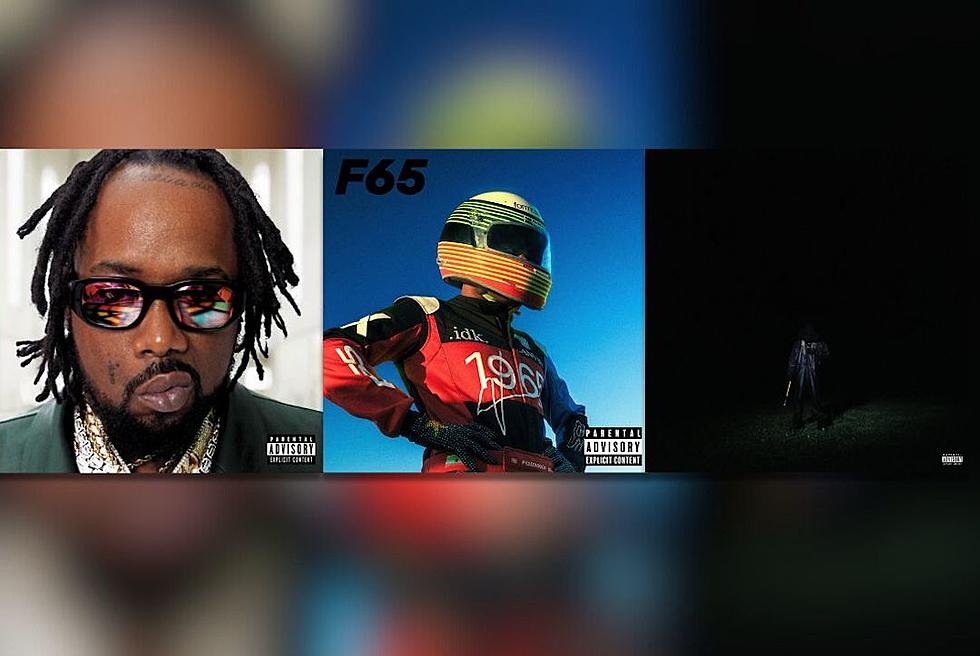
Atmosphere Adds Another Revealing Effort To Their Catalog With ‘Southsiders’
Welcome back to the world of Atmosphere, the carefully-crafted, snug world that Slug and his producer-in-crime Ant have cultivated over 20 years in the game. Southsiders, the duo's eighth official studio album—despite numerous EPs and a compilation or two that were expanded into album releases, it's their eighth official full-length—is the latest installment in the discography of one of the most consistent underground artists that hip-hop has ever seen, and it follows the formula that they've maintained throughout their releases since 1997's Overcast introduced them to the world outside their hometown of Minneapolis.
Over the years, Slug has cultivated a rhyme pattern and lyrical storyline that he has added to and embellished, and the 15 tracks that make up Southsiders further his previously-established narrative of the young, confused kid who grows into a man and isn't prepared for the reality that comes along with it. It's a story with a multi-faceted appeal, and applies to a large percentage of the youth that have grown up in the divorced, middle class household that has become so prevalent in America's recent past. Maybe it's this that makes it so surprising that Atmosphere never truly crossed over into the mainstream pop-rap that Macklemore has cornered so vociferously since "Thrift Shop" and The Heist exploded towards the end of 2012; maybe the duo's indie-centric attitudes and very successful Rhymesayers record label—which Slug and Ant established in 1995 along with two other friends within the hip-hop world—renders that suggestion moot to begin with. Either way, Southsiders is one of those albums that you could see making moves on national radio. But that's never been their focus.
Instead, Slug prefers to stick to his own world, and it's one that his legion of fans has bought into and invested in throughout the years. Songs such as "The World Might Not Live Through The Night" echo the "apocalyptic, little predictable" America that exists within the mainstream, where people are hiding behind masks and inventing their own life stories in order to fit in and gain the popularity that has never been the goal of people like Slug's ever-present narrator. Elsewhere, a song such as "I Love You Like A Brother" or something as straightforward as "Bitter"—with a hook that begins, "You're so bitter/You're cold as a river/In the winter"—has the type of simplistic imagery that Slug has gone back to again and again over the years, but that still works through his earnest delivery and the type of energy that makes the listener believe that he's been their friend for a long time and is just telling another story at the bar over beers. There's something attractive in that way about him; he's always connected in a way that makes you feel like he's just another guy spitting his laments and woes over that final beer before last call, or the guy who finishes up his shift at the local union and needs a pick-me-up before heading home to the reality of the ball and chain. Songs such as "Star Shaped Heart" and "January On Lake Street" have that type of vibe; the protagonist isn't the best person on the planet, but he's trying. It's what many people would like to believe.
The album is shaped by the train tracks of Minneapolis' public transportation system, but in between the rattle of the tracks and the impersonal voice of the woman announcing Franklin Avenue station, Ant was able to provide the type of piano and guitar-based production that many artists would kill for. If Slug has kept things consistent through the years lyrically, the innovation and growth of Atmosphere has come mainly through Ant's production, even though he also often reverts back to some of the hallmarks that made, for instance, the Lucy Ford EPs so gripping. The simple piano line and vocal sample of "Arthur's Song" lays the bedrock on top of which Slug almost has it easy, whereas the distorted overtones of tracks like "Kanye West" and "Southsiders" adds a completely different element that helps keep the album in its entirety from sounding too consistent.
But the real magic of Atmosphere shines through in a song like "Flicker." It's a song that's reminiscent of "Yesterday" from 2008's When Life Gives You Lemons, You Paint That Shit Gold, which deals with the emotions that come with having an absent father, or "Nothing But Sunshine" from the Lucy Ford projects around the turn of the century, which documents a kid trying to navigate a seriously troubled upbringing, where the persona is stripped away and the song itself becomes a type of confessional, where something heavy came through and Slug needed to get things off his chest. "Flicker" details his reaction to the death of his friend and fellow rapper Eyedea, who died in 2010 with opiates in his system. It's a bittersweet tribute to a friend who died too soon, and reveals the depth of emotion that Slug has always been willing to bare on wax. These tracks always tend to be the standouts of each Atmosphere project, but this one connects on a different level, one that is more universal than others, and means more as a result.
One of the redeeming aspects of Atmosphere has always been their willingness to break down the fourth wall, cultivating a connection to their listeners that goes beyond just bumping a beat in a car in the summertime. It's one of the reasons that their fan base can be so rabid at times, why they've been able to make a living from the underground for somewhere in the vicinity of a quarter century. Atmosphere has never been afraid to bare everything, strip things down to their most honest form, and grow with their listeners. Southsiders is the next step in that lineage, and one that falls directly in line with their previous work.—Dan Rys
More From XXL









